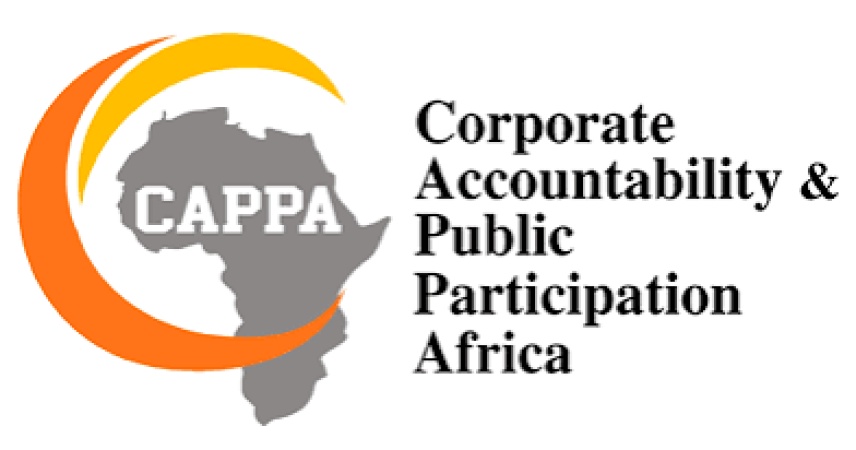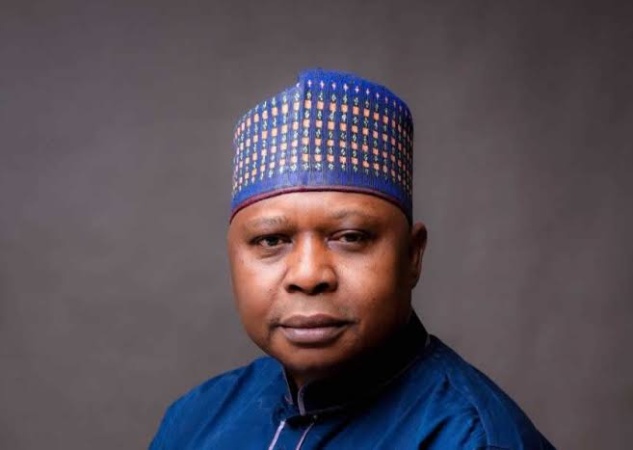

























Loading banners


NEWS EXPRESS is Nigeria’s leading online newspaper. Published by Africa’s international award-winning journalist, Mr. Isaac Umunna, NEWS EXPRESS is Nigeria’s first truly professional online daily newspaper. It is published from Lagos, Nigeria’s economic and media hub, and has a provision for occasional special print editions. Thanks to our vast network of sources and dedicated team of professional journalists and contributors spread across Nigeria and overseas, NEWS EXPRESS has become synonymous with newsbreaks and exclusive stories from around the world.

It is important that Nigerians see through the subterfuge artfully packaged in altruistic colours by the 16 state governments currently lined up at the apex court to challenge the legality of the Economic and Financial Crimes Commission (EFCC). The suit, instituted by the Kogi State government, has 15 other states of Ondo, Edo, Oyo, Ogun, Nasarawa, Kebbi, Katsina, Sokoto, Jigawa, Enugu, Benue, Anambra, Plateau, Cross River and Niger joining.
The main plank of their argument is that the Supreme Court had in Dr. Joseph Nwobike Vs Federal Republic of Nigeria held that it was a United Nations Convention against corruption that was reduced into the EFCC Establishment Act and that in enacting the law in 2004, the provision of Section 12 of the 1999 Constitution, as amended, was not strictly followed. They thus argue that the law, as enacted, going by the provisions of the constitution, could not be applied to states that never approved of it.
Seeking judicial interpretation of the EFCC and the Nigerian Financial Intelligence Unit (NFIU) statutes, at least to the extent that their operations affect the states would ordinarily be seen as perfectly legitimate. This time around, unfortunately, we are neither persuaded nor convinced that the issues that drove the suit are motivated by any concerns with the niceties of constitutionalism or any lofty concerns with the delicate balance of powers among the nation?s federating entities.
So much for the conceitedness of those behind the suit; it is apparent that they are still living in the past. Had it not been so, they ought to have known that whereas corruption may have grown in cancerous proportions in the country, so have the pressures towards open government and transparency been just as relentless and demanding. EFCC/NFIU or not, these state operatives ought to know that the era in which some public finances could be operated in secrecy belong in the past. And that those crimes, for which they now seek the ousting of the powers of the anti-graft bodies in their domains, are no less federal crimes for which ample provisions already exist in the statutes for restitution, and that the EFCC and NFIU are merely implementing them.
The fact of course Is that Section 15 of the constitution grants the National Assembly powers to make laws to curb corruption. In any case, the law in question didn?t just come into operation. It has been with us in the last two decades. The question is ? why is the challenge only now coming?
Are the states saying that the Federal Government cannot pass a law relating to criminal acts of state operatives ? and by this we mean the governors in particular?
We cannot agree more with the elder statesman, Robert Clarke, SAN when he says: ?They cannot challenge the Federal Government for implementing an existing law. They cannot challenge the police or any other agency of government that is executing an existing law. This law they are trying to challenge is a law that was created at the start of our laws as of today.?
It is unfortunate that some of our governors have tended to act like local sovereigns, neither answerable to their parliament nor subject to the strictures of their bureaucracies with their financial regulations. All too often, we have seen a number of them deploy state funds as they wished, with supine legislators acting more like appointees as opposed to providing effective checks against the governors? excesses. And because the constitution vests them with impunity and so their actions cannot be questioned while in office, they think little of foisting another layer of protection for themselves. Of course, that is the purport of the suit which seeks to keep their financial activities beyond the purview of the federal anti-graft bodies.
This, in our view, is injurious to public policy and global best practices. In fact, this utterly selfish, unpatriotic and licentious move by the tiny elite whose understanding of stewardship and public service is dangerously warped must be roundly condemned by all.
Warts and all, the EFCC has certainly served as a force for the good of the country than a few Nigerians are willing to give it credit for. While it may not have been perfect, and its activities have sometimes appeared controversial, it has largely provided a measure of deterrence to fraudulent activities. Over all, it has certainly acquired substantial capacity in tracking and bringing to book financial and other public sector crimes such that the move to restrict its powers as the 16 states are wont to do would pose greater dangers far more than the interests being championed by the governors. Nigerians surely cannot be fooled; to the extent that this country is greater than the sum of its disparate parts, they have no reason to doubt that the Supreme Court will side with the people to stanch the culture of impunity in high places. (The Nation Editorial)